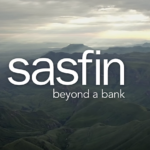The clock is ticking for Windows 10 users. With Microsoft’s official End of Support (EOS) deadline looming in October 2025, South Africans are being…
SA crypto platform Revix to launch with JSE-listed firm R11m [Updated]

SA startup Revix has secured R11-million from a Johannesburg Stock Exchange (JSE) listed firm and is set to go live with its crypto-trading platform next month, Ventureburn can reveal today.
Revix was founded last year by Louis Buys and Sean Sanders (pictured above), who previously worked at investment firm Sabvest for three years and had a brief stint with local venture capital fund Knife Capital in 2016.
Speaking to Ventureburn, Sanders said the platform — which is set to launch on March 15 — will make it easier for the common investor to invest in cryptocurrency funds.
“A lot of people want to invest in crypto but they don’t know how to do it,” he said.
He said the platform — which will target retail and institutional investors –will allow investors to invest in among other things, token offerings that are backed by real world assets such as wine or marijuana even.
SA crypto trading platform Revix has netted R11-million in funding from a JSE-listed firm
Sanders said the name of the JSE-listed firm (which is known to Ventureburn) would be revealed at the launch on 15 March.
He said the JSE listed company — an investment house that has been listed on the JSE since 1988 — has taken 30% equity in his business in return for investing R11-million, in the form of dollars, rand and pounds.
The various currency denominations will allow the intellectual property to exist in the UK and for the platform to trade in London too, said Sanders, although he added that “without a doubt” Brexit represents a risk for the startup.
Sanders said his startup, which has offices in Salt River and London, has eight developers and one marketing person. Two of the developers are based in London.
Editor’s note (22 March 2019): In an email to Ventureburn on 19 March, Revix’s Sean Sanders said the launch of the platform — scheduled to be made on 15 March in a SENS announcement — has now been delayed again. The postponement is until 16 April). “I assure you it will not be changed from this date,” he added.
Added Sanders in the email: “While we are still going to be a UK-domiciled company we needed a bulletproof plan to avoid any Brexit related turmoil (sic). So, we’ve had to structure a backup plan ahead of a launch which has taken attention away from where we needed to be,” he explained. He added that this has also meant that new corporate agreements with the JSE-listed firm — which he does not wish to disclose until the launch of the platform — need to be finalised to cater for this change.
Earlier, on 13 March Sanders told Ventureburn that the launch of the platform would be delayed as the corporate — which is funding the platform — published financial results that week and the parties felt that there was a need to distance news of the launch from the results. An updated release would be made shortly, he said at the time.
28 February 2019: In an email subsequent to the publication of this article, Revix founder Sean Sanders told Ventureburn that the platform only intends to introduce bundled token offerings “later in 2019” and not immediately upon its March launch.
He also pointed out the existence of two Revix entities: while Revix UK is based in the London, a seperate company Revix SA, has offices in Salt River. “They aren’t the same companies and they offer different services to their clients. Revix UK hosts the platform that you can sign up to and use to buy bundles. Revix SA helps SA customers acquire crypto using ZAR since this process can be technical for many first time buyers,” he explained.
He explained that Revix’s bundling approach is like a digital asset version of direct indexing. Bundles replicate the performance of an index by purchasing the underlying assets instead of buying an ETF, structured financial product or mutual fund.
“As is the case with any industry, investing has evolved from technological improvements over the decades. Direct indexing is the next evolution in the investing landscape. Direct indexing is a technology, not a financial instrument, which enables investors and advisors to instantly create, execute and manage a number of indices,” he said.
He added that direct indexing works in the same way as a fund — baskets of assets are bought and sold, but with certain added benefits around things such as what he called efficiencies (where redemptions can be suddenly halted in market declines exacerbating investor anxiety), tax-harvesting benefits (where assets that decline in value can be offset against the assets that appreciate in value), customisation opportunities (the ability to create and customise any exposure) and lower transaction costs.
Featured image: Revix co-founder Sean Sanders (Facebook)

